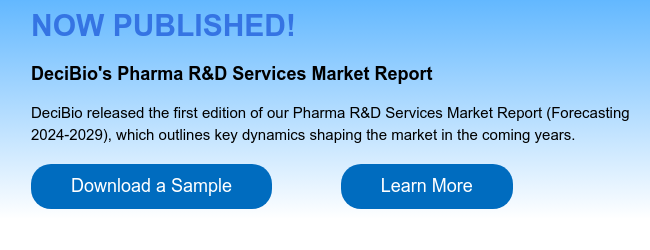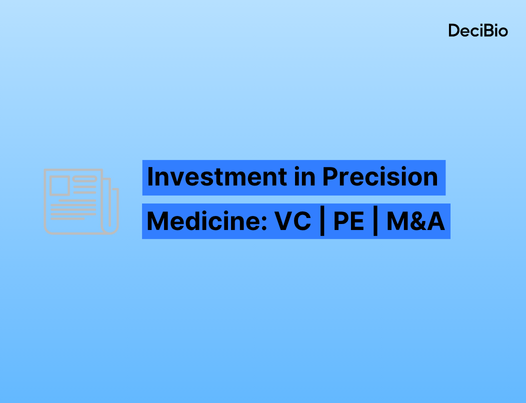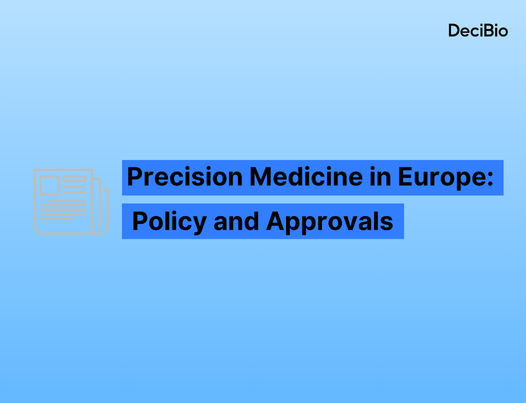Highlights & Summary
July 2025 brought new developments across the digital health ecosystem!
Read more here:
Disease Management / Digital Therapeutics
Fasikl has received FDA clearance for its Felix™ NeuroAI™ Wristband, a noninvasive wearable that uses cloud-connected AI to reduce tremors in adults with essential tremor, offering a new treatment option beyond drugs and surgery. The FDA has issued a warning to WHOOP over its blood pressure estimation feature, classifying it as an unapproved medical device and citing regulatory violations related to its distribution and marketing. Everlab has raised $10 million in seed funding led by Left Lane Capital to scale its AI-powered preventive health platform, combining advanced diagnostics, digital-first clinical care, and personalized insights to enable earlier interventions and long-term disease prevention.
Informatics / Healthcare IT Solutions
OpenEvidence has raised $210M in Series B funding, led by GV and Kleiner Perkins, bringing its valuation to $3.5B. The AI-powered clinical search engine delivers synthesized, research-backed answers at the point of care, with recent milestones including a JAMA Network content deal and HIPAA compliance. Charta Health secured $22M in Series A funding led by Bain Capital Ventures to expand its AI-driven billing and coding platform, which automates chart review to reduce denials and administrative burden while integrating seamlessly with EMRs. MedAdvisor has sold its Australia and New Zealand operations to Jonas Software for A$35M (~$22.8M) plus a potential earn-out, retaining its ASX listing and shifting focus to its U.S. business under a royalty-free license agreement.
Women’s Health / Femtech
ChristianaCare is adopting NeuroFlow’s app- and SMS-based platform to remotely screen and support pregnant and postpartum patients’ mental health, streaming real-time data to clinicians for timely intervention. New Zealand’s Te Puna digital registry now auto-enrolls eligible women in breast-cancer screening and issues digital invitations, targeting 135,000 currently unscreened women through an opt-out model. Plexāā raised $4.5 million to launch BLOOM43, a wearable device and companion app that thermally preconditions breast tissue to reduce surgical complications while enabling remote, personalized prehabilitation. New South Wales has launched a virtual Specialist Menopause Service that provides multidisciplinary telehealth care and interpreter support to women with severe or complex symptoms across several health districts. The AHA and Epic have released an EHR-embedded toolkit that delivers real-time risk scoring and decision support to help hospitals rapidly detect and treat postpartum hemorrhage.
Disease Management / Digital Therapeutics
2 | WHOOP receives warning letter from the FDA for Blood Pressure Insights Feature
3 | Everlab Secures $10M to Scale AI-Driven Preventive Health and Health Optimization Platform Globally
Informatics / Healthcare IT Solutions
1 | OpenEvidence hits $3.5B valuation after raising $210M in Series B funding
2 | Charta Health raises $22M for healthcare operations platform
3 | Jonas Software Acquires Pharmacy Digital Solution Provider MedAdvisor
Women’s Health / Femtech
2 | New nationwide breast screening platform goes live in New Zealand
4 | New virtual health hub improving access to specialist menopause care
5 | AHA and Epic collaborate toward improving maternal health outcomes
News Scrape
Disease Management / Digital Therapeutics
Fasikl has received FDA 510(k) clearance for its Felix NeuroAI Wristband, a noninvasive, AI-driven device developed to help manage upper limb tremors in adults with essential tremor. The wrist-worn device connects to a cloud-based platform to continuously adapt stimulation based on user needs, offering a new option for patients who may not respond to medication or prefer to avoid surgical interventions. Felix will be available by prescription in select U.S. regions starting in 2025, with broader rollout planned for 2026
2 | WHOOP receives warning letter from the FDA for Blood Pressure Insights Feature
The FDA has issued a warning letter to wearable tech company WHOOP over its Blood Pressure Insights feature, stating that it qualifies as a medical device and is being marketed without the necessary regulatory clearance. According to the FDA, BPI's daily blood pressure estimates imply diagnostic intent, placing it under federal medical device regulations. WHOOP has not received 510(k) clearance or premarket approval and did not notify the agency prior to distribution, prompting claims of misbranding and adulteration. WHOOP disputes the classification, describing BPI as a general wellness tool. The FDA maintains that blood pressure estimation carries inherent clinical risk and falls outside its general wellness policy.
3 | Everlab Secures $10M to Scale AI-Driven Preventive Health and Health Optimization Platform Globally
Everlab has raised $10 million in seed funding, led by Left Lane Capital, to accelerate the global expansion of its AI-driven preventive health platform. Aiming to shift healthcare from reactive to proactive, Everlab combines advanced diagnostics with digital-first care and personalized insights to support early intervention, long-term health management, and longevity. Its tiered membership model offers services such as full-body scans, blood testing, ECGs, and continuous glucose monitoring, integrated into a clinical platform powered by AI agents that streamline data analysis and care planning.
Informatics / Healthcare IT Solutions
1 | OpenEvidence hits $3.5B valuation after raising $210M in Series B funding
AI-powered clinical search engine OpenEvidence raised $210M in Series B funding, led by GV and Kleiner Perkins, bringing its valuation to $3.5B and total funding to over $300M since launching in 2022. The platform delivers synthesized, research-backed answers to clinician queries at the point of care, aiming to combat physician burnout and support evidence-based medicine. Recent milestones include a multi-year content deal with the JAMA Network and HIPAA compliance certification, further cementing OpenEvidence’s position as a leading AI copilot for clinicians. The new funding will support expanded content partnerships and product development.
2 | Charta Health raises $22M for healthcare operations platform
Charta Health, a San Francisco-based startup streamlining billing and coding through AI, has raised $22M in Series A funding led by Bain Capital Ventures. The platform automates chart review to identify missed codes pre-submission, aiming to reduce administrative burden and denials. With this new capital, Charta plans to grow its engineering and go-to-market teams, accelerate development, and deepen integrations with payers and providers. Founded by former Rockset engineers, Charta is positioned to bring real-time clinical, financial, and operational insights into EMRs without disrupting workflows.
3 | Jonas Software Acquires Pharmacy Digital Solution Provider MedAdvisor
MedAdvisor has sold its Australia and New Zealand operations, along with associated IP, to Jonas Software for A$35M (~$22.8M), with an additional A$7.35M earn-out possible over three years. The sale follows a strategic review prompted by concerns over the company’s market valuation. MedAdvisor will retain its ASX listing and focus on its U.S. business, which will continue under a royalty-free license with Jonas. Proceeds from the sale will support U.S. operations as the company sharpens its focus on long-term growth and explores options to maximize shareholder value.
Women’s Health / Femtech
ChristianaCare is partnering with NeuroFlow to give pregnant and postpartum patients optional app- and text-based mental-health resources (e.g., education, self-screening, and automated check-ins) across its hospitals and OB-GYN sites. Data from these interactions flow to care teams, allowing timely, remote interventions at no added cost to patients. The collaboration showcases how digital platforms can close maternal mental-health care gaps by integrating continuous behavioral-health monitoring into routine obstetric care.
2 | New nationwide breast screening platform goes live in New Zealand
New Zealand has replaced its legacy breast-screening registry with Te Puna, a modern digital platform from Sorsix that automatically flags women as they become eligible and invites them to schedule mammograms. The opt-out model is expected to reach roughly 135,000 women who qualify but are not currently screened, addressing a critical gap in preventive care. Te Puna’s real-time data accuracy, tracking, and reporting tools also help providers target outreach and monitor program performance. Women benefit from streamlined, digital booking options delivered by text, email, or QR code, reinforcing early detection as a key avenue for reducing breast-cancer mortality.
Plexāā has secured a $4.5 million funding extension to support the imminent U.S. launch of BLOOM43, a fully wearable device and companion app that digitally “pre-habilitates” women preparing for breast-cancer surgery. The system delivers intermittent thermal stimulation (called Supraphysiological Preconditioning™) to boost blood flow and heat-shock protein release, a technique shown in early trials to lower postoperative complication rates that can reach 30% in breast procedures. By combining hardware with a mobile platform, BLOOM43 enables remote monitoring, personalized guidance, and stronger clinician-patient engagement, illustrating how digital health can enhance surgical readiness and outcomes in women’s health.
4 | New virtual health hub improving access to specialist menopause care
New South Wales has opened its fourth menopause-specific health hub: a virtual Specialist Menopause Service based in the South Western Sydney Local Health District. The digitally enabled clinic connects women with severe or complex menopausal symptoms to multidisciplinary medical, nursing and allied-health teams through secure telehealth, with in-person visits offered as needed and interpreter support available for diverse populations. Serving patients across several regional health districts, the hub accepts referrals from GPs, specialists and nurse practitioners, broadening access to expert care beyond metropolitan centres. The initiative is part of a wider, state-funded women’s health strategy that also expands Women’s Health Centres and McGrath breast-cancer nursing posts, underscoring the role of digital health in improving equitable, responsive care for women.
5 | AHA and Epic collaborate toward improving maternal health outcomes
The American Hospital Association and health-IT vendor Epic have jointly launched a digital toolkit embedded in the electronic health record to improve early detection and treatment of postpartum hemorrhage, a leading cause of maternal mortality. The package supplies dynamic risk-stratification, clinical-decision support and evidence-based treatment pathways, all configurable for non-Epic EHRs with appropriate content permissions. By integrating these tools directly into clinicians’ workflows, the initiative aims to standardize and expedite life-saving interventions for new mothers. The partnership extends the AHA’s Patient Safety Initiative and will provide hospitals with implementation guidance, peer-learning forums and other resources to accelerate adoption and share best practices.

.png)




.png)

.png)


